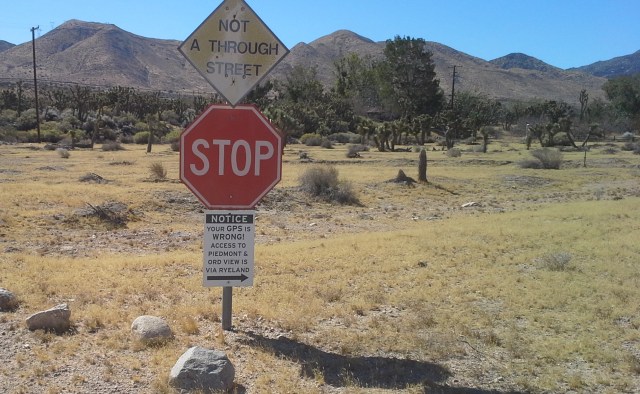Sometimes I wonder if it’s time for me to stop talking about the ups and downs of my life, just stick with . . . I don’t know . . . upbeat thoughts, perhaps. I won’t, though. I do not believe it is either healthy or wise to always put on a smiling face. Life is good, but it is also cruel. Life is happy, but it is also sad. Life is easy, but it is also hard. How can we ignore the parts of life that might not be comfortable?
The truth is, although I can handle the downs of my life, the emotion lows, most other people can’t. It makes them uncomfortable. And rightly so. People who are smug in their couplehood don’t want to have to think of being the one left behind. People who own houses do not want to admit that some people might be homeless (not in a disfunctional sort of way, but in simply a roofless and rootless sort of way) through no fault of their own. People who are surrounded by family don’t want to know what it is like to be a generation of one.
Perhaps oddly, I have never considered happiness something to pursue. It seems more of a hindsight sort of thing, realizing after the fact that one was happy, which makes happiness a thing of the past, not the present, and therefore irrelevant. Being unhappy at times in the present is not a crime. Sometimes not being particularly happy is a proper response. Most reasonable people, in a hurricane, try to get out of the wind, not revel in the devastation. And above all, I am reasonable.
It is not just the loss of the brother closest to me in age ten years ago, the loss of my mother nine years ago, the loss of my life mate/soul mate six years ago, the loss to mental illness of my older brother two and a half years ago, and the loss of my father one and a half years ago. It’s also the loss of my livelihood (my life mate and I were in business together; although I am a writer, I am not one of the lucky ones who make a living at it). The loss of my home — twice (once six years ago when I came to the desert to take care of my dad, and then again a year and a half ago when my dad died.) And the loss of the feeling of purposefulness more times than I can count. (Lost the feeling of purposefulness that came from building a coupled relationship, from taking care of the sick and the dying, from grieving.)
Considering all that pain and loss, I do not think it is unreasonable to still have times of sadness. To still have times when death makes me cry. (I ran over a snake this morning, couldn’t stop in time, and I cried over the pain and eventual loss of that beautiful creature.)
I do not need to be cured. Happy or sad, I am perfectly fine. Happy is easier, of course, but why does life have to be easy?
I often mention my difficulty finding a place to live, but it only bothers me sporadically. Like when the outside temperature is over 100, and I am exhausted. Then life gets daunting. Meantime, I am staying in an incredible part of the desert, at the foot of the Ord Mountains. I have to drive the worst road imaginable, but I have made new friends, hiked some glorious terrains (and gloriously hot terrains), will go hiking tomorrow with a woman who can show me hidden trails. I am negotiating with a fellow for a room in his house for next month (and space in his garage!). And if that falls apart, I will stay here on the road from hell another month. And if that becomes impossible? Well, something else will come along. Or not.
Happy or sad. Comfortable or uncomfortable. Easy or hard. It’s all part of the adventure.
***
(Pat Bertram is the author of the suspense novels Light Bringer, More Deaths Than One, A Spark of Heavenly Fire, and Daughter Am I. Bertram is also the author of Grief: The Great Yearning, “an exquisite book, wrenching to read, and at the same time full of profound truths.”)
***








 I just now returned from a ramble in the desert, so the sadness has dissipated a bit, but all the pieces of my life are still in a heap at my feet. As the next few days progress, I’ll pick up the pieces one by one, and maybe this time the structure I build will have more permanence. Or not. No matter how good an attitude I have, no matter how much I become immersed in life-affirming activities, he is still dead and there isn’t anything I can do about it. I just have to continue on, realizing that my life has worth. I have worth.
I just now returned from a ramble in the desert, so the sadness has dissipated a bit, but all the pieces of my life are still in a heap at my feet. As the next few days progress, I’ll pick up the pieces one by one, and maybe this time the structure I build will have more permanence. Or not. No matter how good an attitude I have, no matter how much I become immersed in life-affirming activities, he is still dead and there isn’t anything I can do about it. I just have to continue on, realizing that my life has worth. I have worth.

 When I looked at the day on my cell phone today and noticed it was the 31st, my first thought was, “New Years Eve, already?” It felt good thinking that this year was over, and that a new one would begin in just a few hours, and then the truth sunk in — this year would not be over for another eleven months.
When I looked at the day on my cell phone today and noticed it was the 31st, my first thought was, “New Years Eve, already?” It felt good thinking that this year was over, and that a new one would begin in just a few hours, and then the truth sunk in — this year would not be over for another eleven months. My mother died five years ago today, almost exactly a year after my brother. (This is the last photo of the two of them together.) To understand the sly humor rather than the pathos behind that sentence, I’ll have to tell you a bit about my mother. She spoke with perfect diction, in unstilted, unaccented English, and she loved words and word games, especially the kind of game where you take a word or phrase and find as many smaller words as possible. For example: in “almost exactly,” you can find most, call, cell, yell, exact, alas, and so on (Me? I hate that game, perhaps because I could never win when I played with her.).
My mother died five years ago today, almost exactly a year after my brother. (This is the last photo of the two of them together.) To understand the sly humor rather than the pathos behind that sentence, I’ll have to tell you a bit about my mother. She spoke with perfect diction, in unstilted, unaccented English, and she loved words and word games, especially the kind of game where you take a word or phrase and find as many smaller words as possible. For example: in “almost exactly,” you can find most, call, cell, yell, exact, alas, and so on (Me? I hate that game, perhaps because I could never win when I played with her.).








